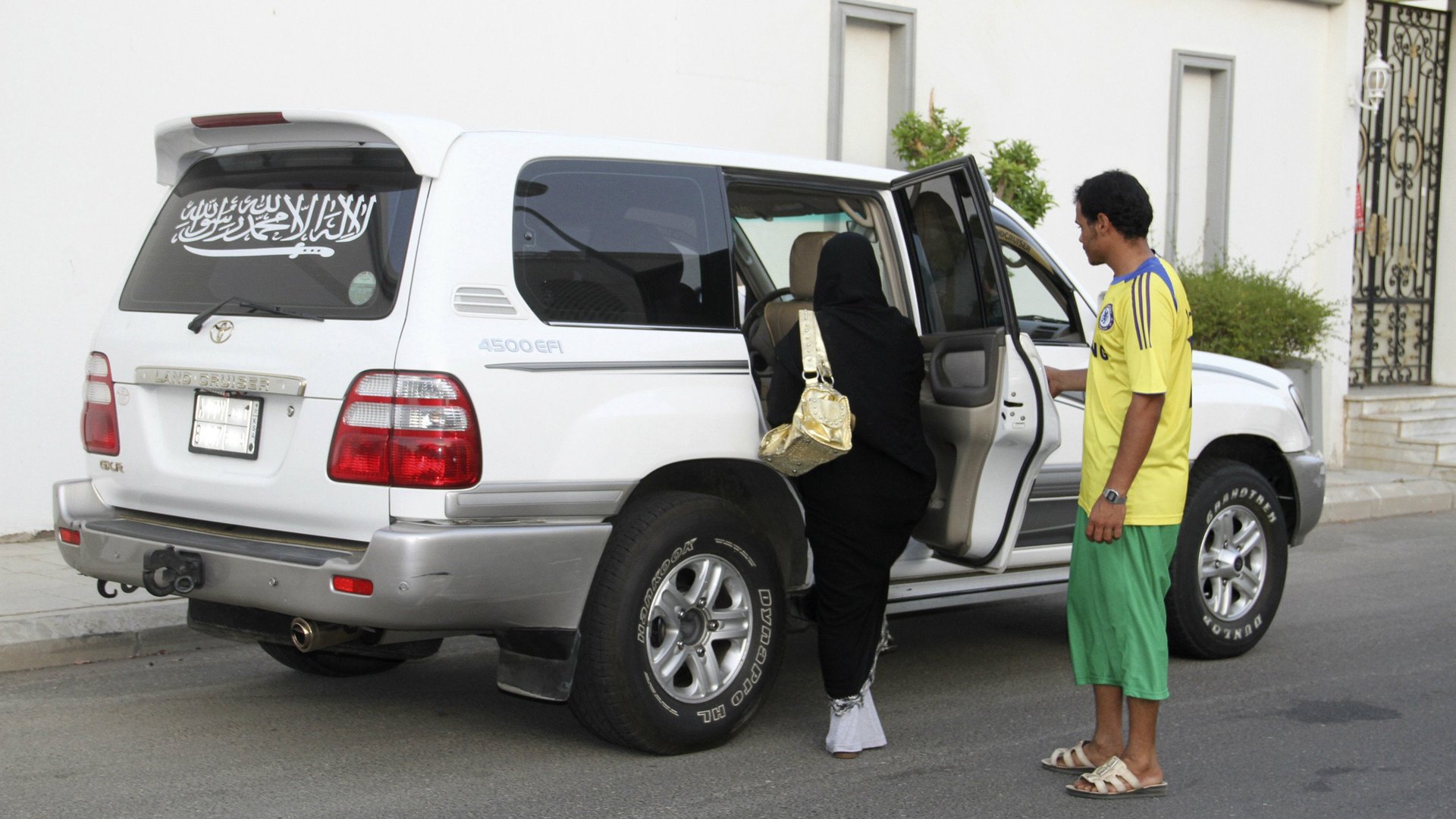As women get to drive in Saudi Arabia, Uber might lose some of its most loyal customers
Earlier this week, King Salman of Saudi Arabia announced the landmark decision that women would finally be allowed to drive.


Earlier this week, King Salman of Saudi Arabia announced the landmark decision that women would finally be allowed to drive.
The change is a win for many reasons. It is huge gain for women’s rights in the conservative country, it has the potential to attract outside investment from international tech hubs, and is a boon for automakers hoping to woo 9 million potential new drivers in the largest car market in the Gulf region.
One casualty of the decree? Uber could see a drop in users, as many women who relied on the ride-sharing app to get around will now be able to drive themselves. Uber entered Saudi Arabia in 2014 and positioned itself as a safe, reliable solution for women dealing with the country’s restrictive transit options. According to Bloomberg, 80% of Uber rides in Saudi Arabia are taken by women.
Because Saudi Arabia is the only country in the world that doesn’t allow women to drive, women were reliant on chauffeurs to get around. It isn’t uncommon for Saudi women to spend a third of their monthly income to employ and house personal drivers. The emergence of Uber in the country significantly reduced those costs. Ride-hailing apps, including Uber and its regional rival Careem, have offered women in the conservative country more freedom of movement, giving them the chance to participate more deeply in the workforce, which has been a recent goal of the Saudi government.
Uber might not be able to even benefit from the new pool of women drivers. Prince Khalid bin Salman, the Saudi ambassador to the US, said at a news conference following the announcement that the Saudi Interior Ministry would decide whether women would be able to work as professional drivers. That said, Saudi Arabia has a significant interest in Uber’s future success; the country’s sovereign wealth fund invested $3.5 billion in the ride-hailing app last year.
“We’re proud to have been able to provide extraordinary mobility for women in Saudi, and are excited by the economic opportunities this change could represent for them in the future,” Uber said in a statement.